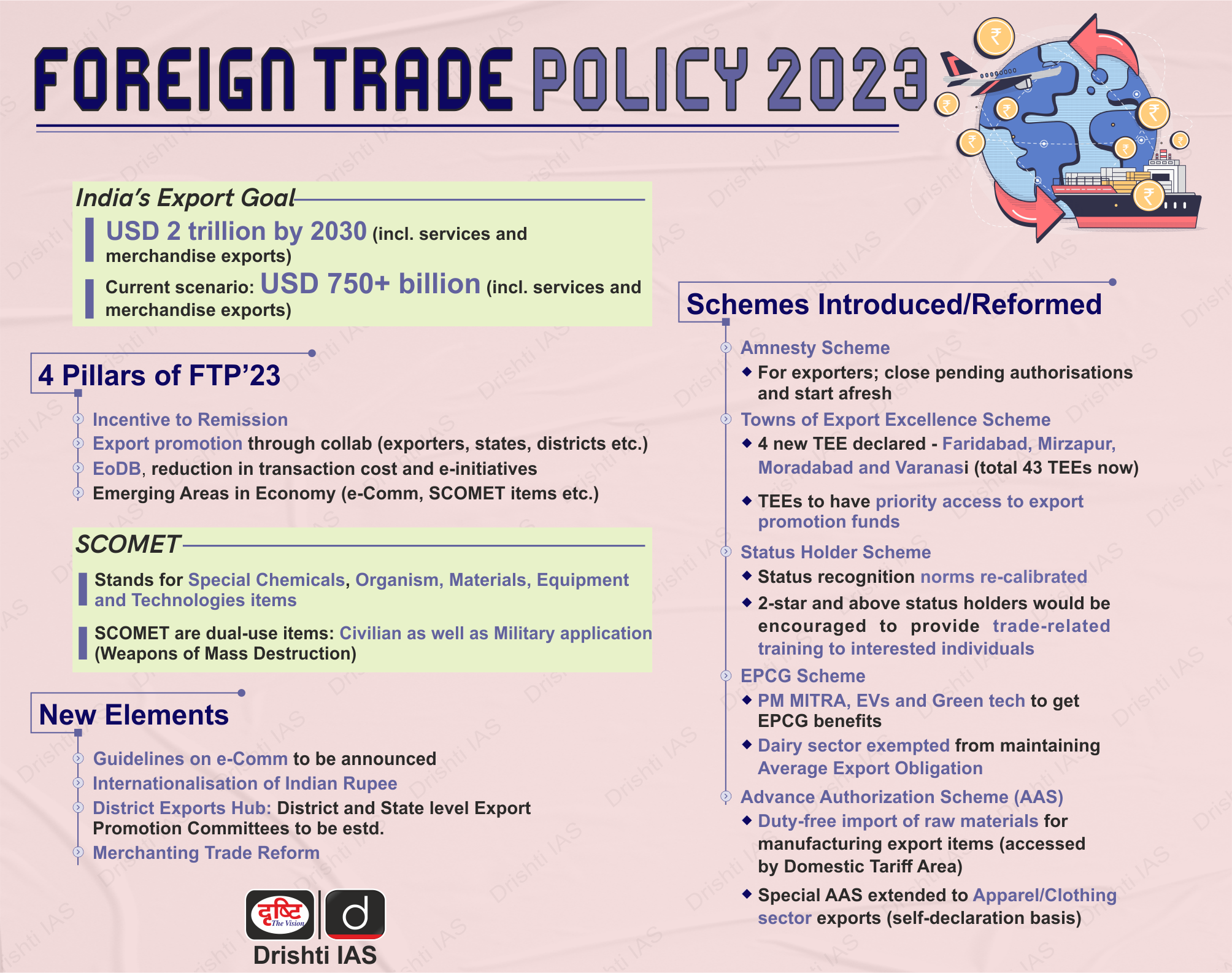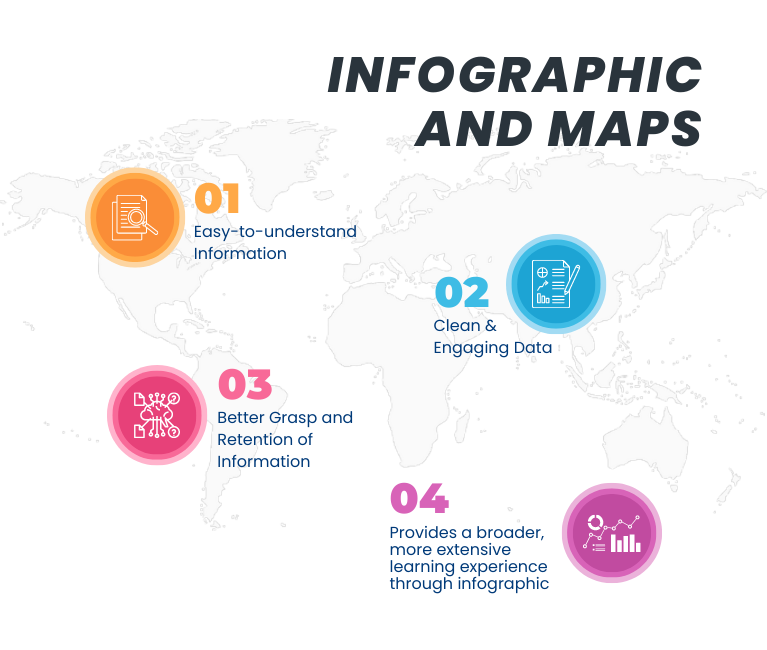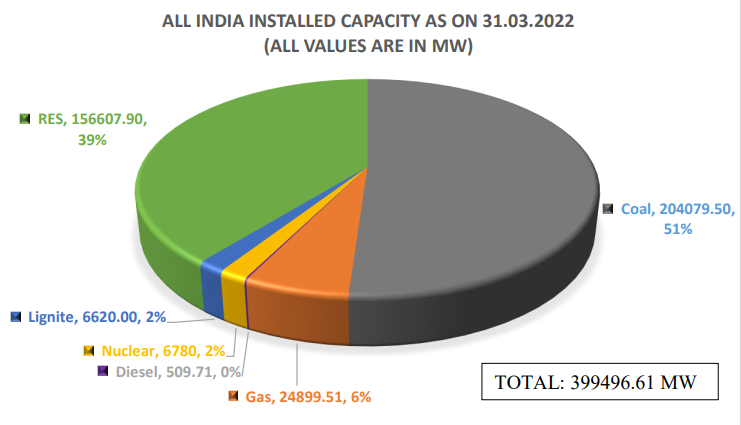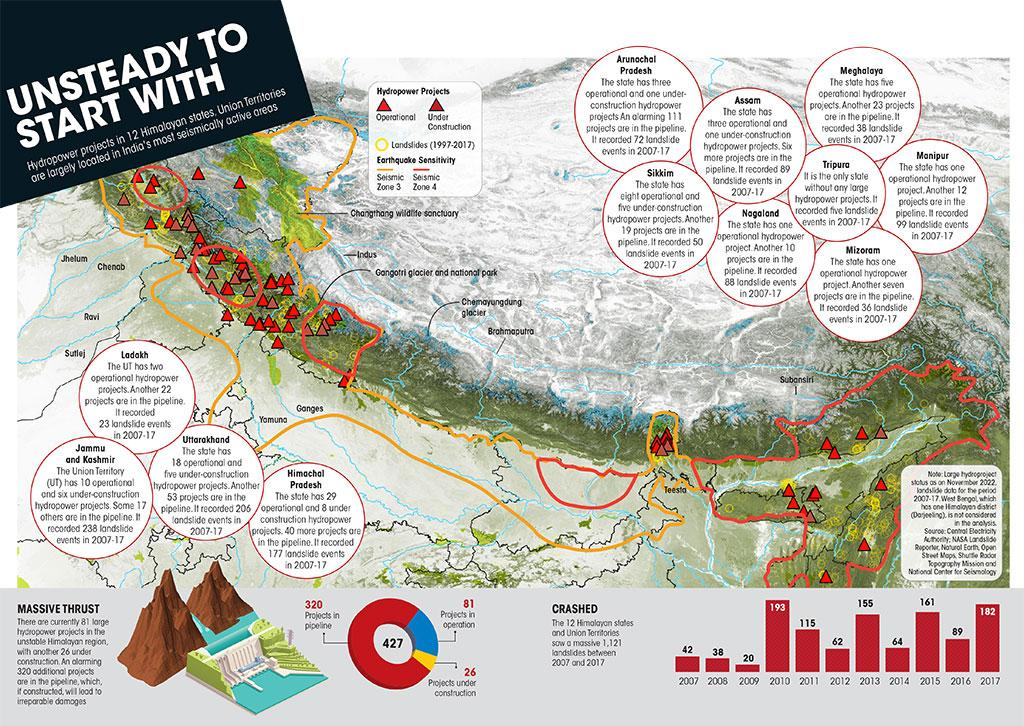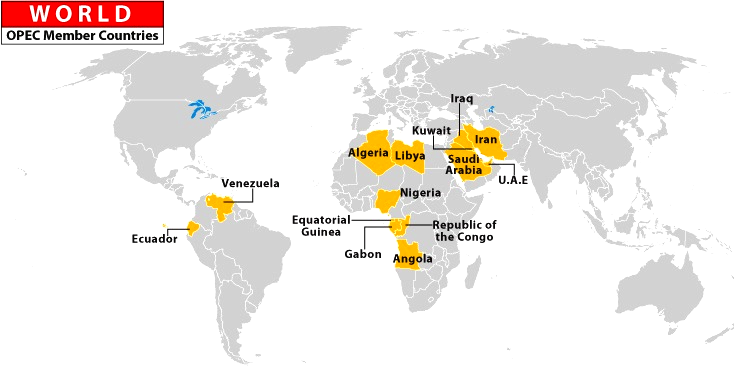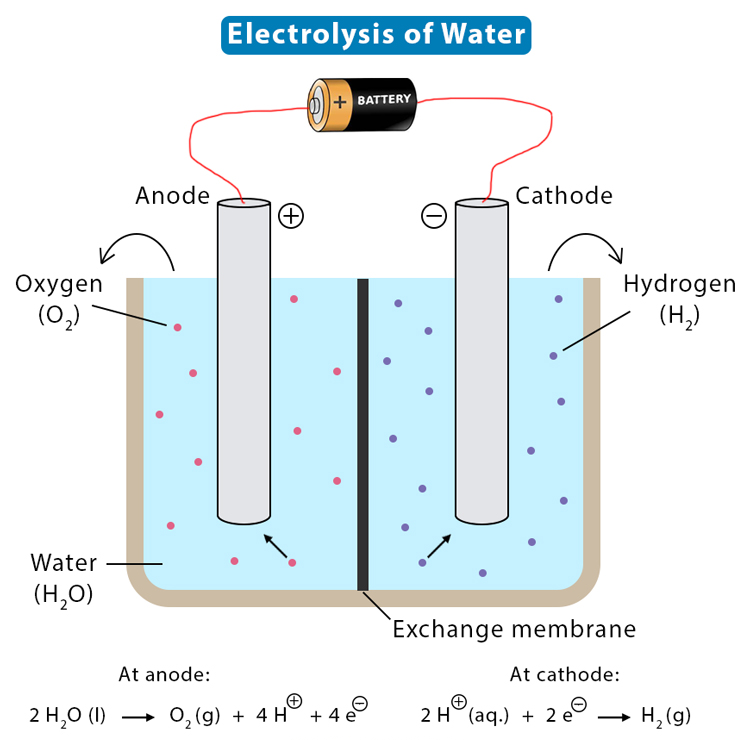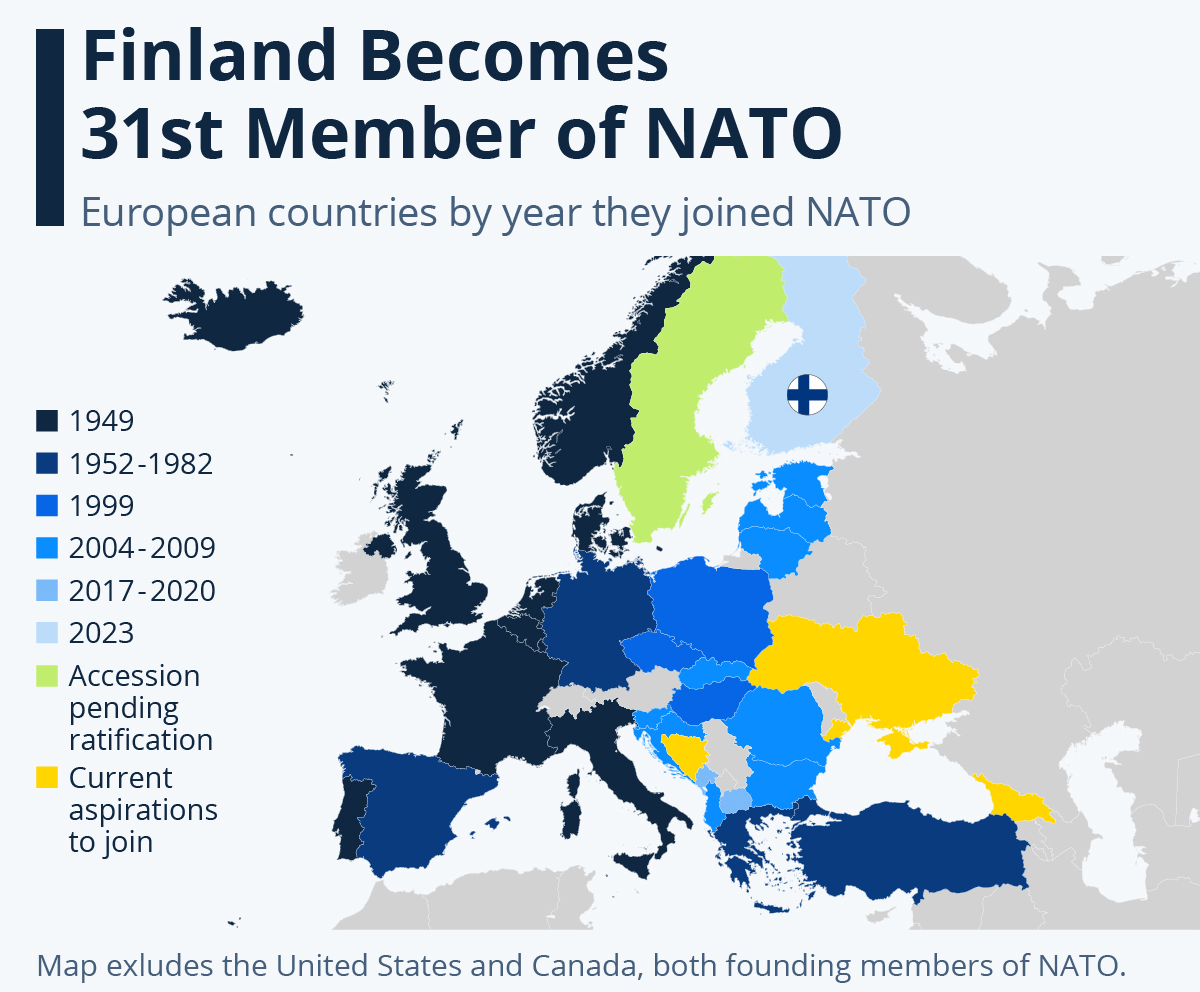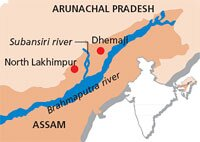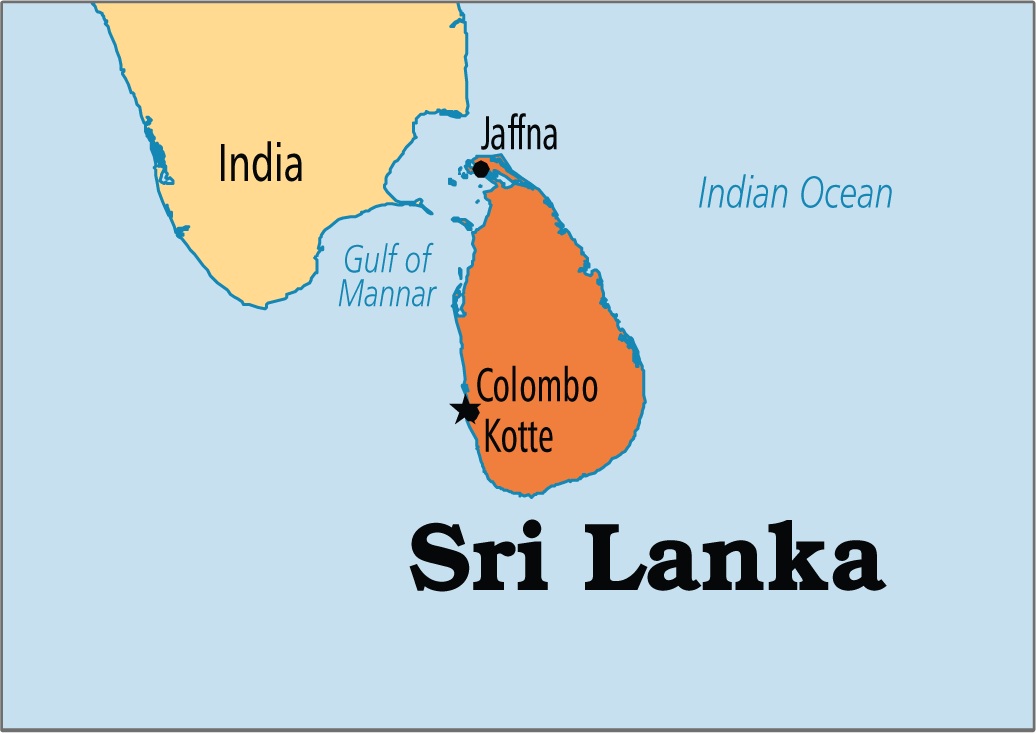Infographics
Governance
National Electricity Plan for 2022-27
For Prelims: Central Electricity Authority, Electricity Act, 2003, Battery Energy Storage Systems, Lithium-ion batteries.
For Mains: National Electricity Plan for 2022-27.
Why in News?
The latest draft of the National Electricity Plan (NEP), which covers the period 2022-27, marks a significant departure from its previous edition, which had focused primarily on renewable energy.
What is the National Electricity Plan?
- About:
- The NEP is a crucial document that guides the development of the power sector in India. It is formulated by the Central Electricity Authority (CEA) every five years under the Electricity Act, 2003.
- The CEA formulates short-term (5-year) and prospective plans (15-year) to assess the demand for planning capacity addition and coordinate the activities of various planning agencies for the optimal utilization of resources.
- The NEP provides a review of the last five years (2017-22), capacity addition requirements for 2022-27, and projections for the period 2027-2032.
- The first NEP was notified in 2007, the Second Plan in December 2013, and the third plan which covers the detailed Plan for 2017-22 and the perspective Plan for 2022-27 was notified in 2018.
- New Draft:
- It recognizes the need for additional coal-based capacity, ranging from 17 GW to nearly 28 GW, till 2031-32, over and above the 25 GW of coal-based capacity that is currently under construction.
- The draft Plan also highlights the need for significant investments in battery storage, with an estimated requirement of between 51 GW to 84 GW by 2031-32.
- It projects an increase in the Plant Load Factor (PLF) of coal-fired power plants from 55% up to 2026-27 to 62 % in 2031-32.
- It also emphasizes the challenges posed by the increasing reliance on renewables, which will require careful management and planning in the years ahead.
What is the Power Scenario of India?
What are the Related Challenges?
- Reliance on Old Plants:
- India's fleet of coal-fired thermal power plants is over 25 years old and runs on outdated technology, which raises concerns about grid stability and power interruptions.
- Difficult to Manage the Renewables-Dominated Grid:
- While there has been a pronounced reliance on renewable generation for meeting capacity additions, there is a lack of clarity on how the grid will be managed. The slow development of hydropower and zero-inertia solar generators has resulted in a decrease in inertia, which provides stability to the grid.
- Inadequate Funding:
- If battery storage is to be relied on to back up renewable generation, it requires significant investments.
- The CEA report estimates that the total fund requirement for Battery Energy Storage Systems (BESS) between 2022-27 is approximately 14.30 lakh crore. However, the CEA has only allocated a budget of 8 lakh crore for BESS development for a 10-year period.
- If battery storage is to be relied on to back up renewable generation, it requires significant investments.
- Lack of Evaluation:
- There is no evaluation of the ramping rate for thermal plants under different solar generation scenarios.
- The ramping rate is the rate at which a power plant can increase or decrease its output.
- Without proper assessment, it could lead to issues such as overloading, underloading, or power interruptions.
- There is no evaluation of the ramping rate for thermal plants under different solar generation scenarios.
How can the Related Challenges be Addressed?
- BESS based on Lithium-ion batteries offer a cost-effective solution to balance the grid against load fluctuations and intermittency in generation. The energy storage can provide energy time-shifting, allowing power to be used when it is needed rather than being wasted when it is generated.
- It is important to continue investing in the development of battery storage technology, as well as exploring new solutions such as water-based systems. This will help address the challenges outlined in the National Electricity Plan for 2022-27 and ensure a stable and reliable power supply in India.
- Additionally, increasing the use of hybrid generation models will help to transition to renewable energy sources while ensuring backup power is available when needed.


Science & Technology
3D Printed Cryogenic Engine and Space Sector Privatisation
For Prelims: 3D Printing, Cryogenic stage rockets, Initiatives in Privatisation of the Space Sector
For Mains: Privatisation of space sector - India’s achievements and its significance, India’s self-reliance in space technology
Why in News?
Indian private space vehicle company - Skyroot Aerospace - recently test-fired its 3D-printed cryogenic engine - Dhawan II, developed for its heavier vehicle - Vikram II.
- Earlier in November 2022, Skyroot launched India’s first privately developed rocket Vikram-S.
- This adds to the growth story of India’s space sector privatisation.
What is 3D Printing?
- 3D printing is also known as additive manufacturing which uses materials such as plastics and metals to convert products envisaged on computer-aided design to real three-dimensional items.
- It is the opposite of subtractive manufacturing which is cutting out/hollowing out a piece of metal or plastic with, for instance, a milling machine.
- 3D printing traditionally has been used for prototyping and has a lot of scope in making artificial limbs, stents, dental crowns, parts of automobiles and consumer goods, among others.
What is a Cryogenic Engine?
- About:
- A cryogenic engine/ cryogenic stage is the last stage of space launch vehicles which makes use of Cryogenics.
- Cryogenics - the study of the production and behaviour of materials at extremely low temperatures (below -150℃) to lift and place the heavier objects in space.
- It uses Liquid Oxygen (LOx) and Liquid Hydrogen (LH2) as propellants.
- They are one of the hardest to develop and so far only 6 countries have these launch vehicles - the US, China, Russia, France, Japan, and India.
- India’s heaviest launch vehicles – GSLV and GSLV Mk III – use cryogenic fuel in the upper stage of the launch vehicle.
- A cryogenic engine/ cryogenic stage is the last stage of space launch vehicles which makes use of Cryogenics.
- Advantages:
- It is more efficient and provides more thrust for every kilogram of propellant it burns compared to solid and earth-storable liquid propellant rocket stages.
- Using a cryogenic upper stage instead of a solid fuel stage enhances the payload carrying capacity of a rocket.
- Both fuels (LOx and LH2) are environment-friendly compared to other solid, semi-cryogenic and hypergolic propellants used in the rocket industry.
- Disadvantage:
- It is technically a much more complex system as against solid/earth-storable liquid propellant stages due to the usage of propellants at extremely low temperatures and the associated thermal and structural problems.
What is Dhawan II?
- The Dhawan cryogenic engine series of Skyroot is named in honour of Satish Dhawan, an eminent Indian rocket scientist who played a crucial role in the development of India's space programme.
- Dhawan II builds upon Skyroot's first privately developed fully-cryogenic rocket engine - Dhawan–I, which was successfully test fired in 2021.
- It is completely indigenous and used a superalloy for 3D printing the engine, which reduced the manufacturing time by 95%.
- It will use Liquid Natural gas (LNG) and Liquid Oxygen (LoX) as propellants.
- LNG is more than 90% methane and is considered the rocket fuel of the future.
- The engine development was partly supported by NITI Ayog’s ANIC-ARISE program which promotes technologies including the use of green rocket propellants.
What are the Initiatives in Privatisation of the Space Sector?
- IN-SPACE:
- IN-SPACE was launched to provide a level playing field for private companies to use Indian space infrastructure.
- It acts as a single-point interface between Indian Space Research Organisation (ISRO), and everyone who wants to participate in space-related activities or use India’s space resources.
- NewSpace India Limited (NSIL):
- NewSpace India Limited (NSIL) aims to use R&D carried out by ISRO over the years for commercial purposes through Indian industry partners.
- Indian Space Association (ISpA):
- Indian Space Association (ISpA) is the apex, non-profit industry body exclusively working towards the successful exploration, collaboration, and development of the private and public Space Industry in India.
- Vikram Series of Skyroot:
- Vikram - named after Dr. Vikram Sarabhai, founder of the Indian Space Program - is a series of modular Space launch vehicles especially crafted for the small satellite market.
- It has 4 variants: Vikram S, Vikram, Vikram II and Vikram III.
- Vikram S, made Skyroot the first Indian private company to send a rocket into space.
- Vikram II rocket is scheduled to become launch-ready by 2024 which will make the company the first private launcher from South Asia.
- Vikram - named after Dr. Vikram Sarabhai, founder of the Indian Space Program - is a series of modular Space launch vehicles especially crafted for the small satellite market.
How is Privatisation of the Space Sector Significant?
- The global space economy is currently valued at about USD 360.1 billion, however, India accounts for only ~2% of the space economy. The private players in the industry have been limited to being vendors/suppliers to the govt.’s space program.
- Enhanced participation of Non-Governmental Entities (NGEs) in the space sector will boost India’s market share in the Global Space Economy.
- Promoting the private sector will enable the Indian space program to remain cost competitive within the global space market, and thus create several jobs in the space and other related sectors.
- This will help India to position itself as a global leader in space technology and innovation.
- Private players can bring in new technologies, innovation, and management skills, leading to cost optimisation and increased efficiency in space-related activities.
- This will also free up government resources to focus on other critical sectors.
Note
- India is the 6th-largest player in the space industry internationally, having ~3.6% of the world’s space-tech companies (as of 2021).
- The US holds the leader’s spot housing 56.4% of all companies in the space-tech ecosystem followed by the UK (6.5%), Canada (5.3%), China (4.7%) and Germany (4.1%).
UPSC Civil Services Examination Previous Year Questions (PYQs)
Q. With reference to India’s satellite launch vehicles, consider the following statements: (2018)
- PSLVs launch the satellites useful for Earth resources monitoring whereas GSLVs are designed mainly to launch communication satellites.
- Satellites launched by PSLV appear to remain permanently fixed in the same position in the sky, as viewed from a particular location on Earth.
- GSLV Mk III is a four-staged launch vehicle with the first and third stages using solid rocket motors; and the second and fourth stages using liquid rocket engines.
Which of the statements given above is/are correct?
(a) 1 only
(b) 2 and 3
(c) 1 and 2
(d) 3 only
Ans: (a)


Biodiversity & Environment
Impacts of Hydropower Projects in the Himalayan Region
For Prelims: Central Electricity Authority, Landslides, Earthquake, National Mission on Sustaining Himalayan Ecosystem, National Action Plan on Climate Change
For Mains: Impact of hydro power projects in Himalaya Region
Why in News?
Disasters linked to hydropower projects in the Himalayan region have become more frequent in recent years.
What is the Potential of Hydropower Projects in Himalayan Region?
- With its abundant waterbodies and ideal topography to utilize the resource for electricity generation, the Himalayan region is regarded as the powerhouse of India.
- Government estimates suggest that the region has a potential to generate 115,550 MW with its installed capacity of 46,850 MW.
- Till November 2022, the 10 states and two Union territories in the region had 81 large hydropower projects (above 25 MW) and 26 projects under construction.
- Another 320 large projects are in the pipeline, according to the Central Electricity Authority under the Union Ministry of Power.
What are the Risks and Impacts of Hydropower Projects in the Himalayan Region?
- Vulnerability:
- The Himalayas are part of a seismically active zone.
- Despite the climate and seismic activities in the Himalayas making its river valleys prone to landslides, hydropower projects are mushrooming in the region. In Uttarakhand’s Joshimath town, where more than 800 buildings have developed cracks due to subsidence, the government on January 5, 2023, imposed a ban on construction activities, including on the works at Tapovan Vishnugad hydropower project.
- Impact:
- Hydropower projects in the region have become more frequent in recent years, and disasters linked to these projects have increased.
- In 2012, flooding in the Assi Ganga river damaged the Assi Ganga hydroelectric projects (HEP) 1 and 2.
- The 2013 Kedarnath floods severely damaged Phata-Byung, Singoli-Bhatwari, and Vishnuprayag HEPs.
- In 2021, a rock and ice avalanche destroyed the Rishi Ganga project and damaged the Vishnugad-Tapovan HEP, leaving over 200 dead and estimated losses of Rs 1500 crore.
- Vishnugad-Tapovan had already suffered recurring damages due to terrain fragility, according to various media reports.
- In December, 2022, a significant slope failure occurred at the Urni landslide zone in Kinnaur district of Himachal Pradesh, where construction works have been going on at the 1,091 MW Karcham Wangtoo hydroelectric plant.
- These landslide dams usually result in impounding of lakes, landslide lake outburst flood, secondary landslides, channel avulsion, and formation of flood terraces in the downstream region, affecting the environment and local communities.
What are the Government Initiative Taken So Far?
- National Mission on Sustaining Himalayan Ecosystem (NMSHE) is one of the eight missions under the National Action Plan on Climate Change (NAPCC). The mandate is to evolve measures to sustain and safeguard the Himalayan glaciers, mountain ecosystems, biodiversity and wildlife conservation & protection.
- Environment Impact Assessment for large hydro power plants.
What Steps can be taken to Reduce the Impact?
- The risks posed by landslides in the Himalayas have been aggravated in recent years, making hydropower projects more dangerous and unsustainable.
- There is a dire need to re-evaluate these projects based on current scientific data.
- Most of the existing or under-construction projects in the Himalayas were envisaged 10-15 years ago, and the government should look at new science and then decide.
- Even if the government decides in favor of the project, let the local panchayat give it in writing that they are in favor of the project.
- Constitution of expert committee to study impact of HEP in Himalayan region. For e.g., Ravi Chopra committee set up by the ministry to examine the role of 24 such hydropower projects in the Alaknanda and Bhagirathi basin.
UPSC Civil Services Examination Previous Year Questions (PYQs)
Q. Bring out the causes for more frequent landslides in the Himalayas than in Western Ghats. (2013)
Q. Describe the various causes and the effects of landslides. Mention the important components of the National Landslide Risk Management Strategy. (2021)


International Relations
OPEC+ Announces Additional Production Cuts
For Prelims: OPEC+, OPEC.
For Mains: OPEC+’s Oil Production Cut and Its Impact.
Why in News?
The Organization of the Petroleum Exporting Countries (OPEC) and its allies, collectively known as OPEC+, announced a surprise reduction of 1.16 million barrels per day (bpd) in their oil production to support market stability.
What is the Background of Voluntary Cut in Oil Production?
- Background:
- Oil prices skyrocketed after the Russia-Ukraine Conflict and have been fluctuating in recent months, with a drop towards USD 70 per barrel in March 2023 due to concerns of a global banking crisis that could hit demand.
- Countries Involved:
- Till yet, Saudi Arabia, Iraq, UAE, Kuwait, Oman, Algeria, Kazakhstan, Russia and Gabon announced a voluntary oil output cut.
- However, not all OPEC+ members are joining the voluntary cuts, as some are already pumping well below agreed levels due to a lack of production capacity.
What will be the Major Impacts of Voluntary Cut in Oil Production?
- Impact on the U.S: The move is likely to be highly detrimental to the US, which has repeatedly asked the organisation to increase oil production.
- Impact on Non-OPEC Countries: The production cuts could have an impact on non-OPEC countries that rely on oil exports, as they may face increased competition in the market.
- Impact on India: India imports nearly 85% of its crude requirement, the oil import bill will rise on account of the rise in prices due to decreased production.
- The rise in import bills will not only lead to inflation and a rise in the Current Account Deficit (CAD) and fiscal deficit but also weaken the rupee against the dollar and hurt stock market sentiment.
- As per Investment Information and Credit Rating Agency (ICRA), for every USD 10 per barrel increase in the price of the Indian crude oil basket, the CAD could widen by USD 14-USD 15 billion, or 0.4% of GDP.
What is OPEC+?
- OPEC: Established in 1960 by founding members Iran, Iraq, Kuwait, Saudi Arabia and Venezuela, OPEC has since expanded and now has 13 member states.
- Member countries are: Algeria, Angola, Congo, Equatorial Guinea, Gabon, Iran, Iraq, Kuwait, Libya, Nigeria, Saudi Arabia, United Arab Emirates, Venezuela.
- Headquarter: Vienna, Austria.
- OPEC produces about 40% of the world’s crude oil and its members’ exports make up around 60% of global petroleum trade.
- Member countries are: Algeria, Angola, Congo, Equatorial Guinea, Gabon, Iran, Iraq, Kuwait, Libya, Nigeria, Saudi Arabia, United Arab Emirates, Venezuela.
- OPEC+: In 2016, with the addition of another 10 allied major oil-producing countries, the OPEC is known as OPEC+.
- OPEC+ countries include 13 OPEC member countries and Azerbaijan, Bahrain, Brunei, Kazakhstan, Malaysia, Mexico, Oman, Russia, South Sudan and Sudan.
- Objective:
- The objective of the organisation is to “coordinate and unify the petroleum policies of its Member Countries and ensure the stabilisation of oil markets in order to secure an efficient, economic and regular supply of petroleum to consumers, a steady income to producers and a fair return on capital for those investing in the petroleum industry.


Indian Heritage & Culture
Pattanam Site
For Prelims: Archaeological site, Muziris, Greco-Roman classical age, South Indian civilization.
For Mains: Pattanam Site.
Why in News?
Recently, some excavations have uncovered the Pattanam Site in Kerala, revealing that Pattanam was a thriving urban center from the 5th century B.C. to the 5th century A.D.
What are the Key Points of Pattanam Site?
- About:
- Pattanam, located in central Kerala, is home to the only multi-cultural archaeological site on the southwestern coast of the Indian subcontinent.
- The excavations have uncovered less than 1% of the site so far, but the evidence has found that it was a thriving urban center around 5th century A.D., with its peak phase from 100 B.C. to A.D. 300.
- It was known as Muziris, the "first emporium" of the Indian Ocean, having rigorous cultural and commercial exchanges between the Greco-Roman classical age and ancient South Indian civilization.
- The name Muziris is believed to have originated from the Tamil word "Muciri", which means "the land of seven rivers”.
- Pattanam Excavations:
- The technological, metallurgical, literary, and artistic advances of this phase bear witness to rigorous cultural and commercial exchanges.
- The Pattanam excavations have unearthed over 45 lakh sherds (ceramic fragments); these include approximately 1.4 lakh belonging to the littoral regions of the Mediterranean, the River Nile, the Red Sea, the western and eastern Indian Oceans, and the South China Sea. Recent findings include the seal of a sphinx, native to the ancient Greek city of Thebes.
- New Findings:
- No Social Hierarchy:
- There is no evidence of institutionalized religion or caste system in ancient Pattanam.
- No Idol Worship:
- No idols of gods and goddesses or grandiose places of worship were found.
- Absence of Weaponry:
- The absence of sophisticated weaponry also stands in contrast with some other Pattanam-contemporary sites.
- The people of Pattanam may have been a peace-loving people who did not harbor religious and caste boundaries.
- Cremation and Burial Practices:
- The burial practices at the Pattanam site were confined to fragmentary skeleton remains, and the burials were of a "secondary" nature, where the dead were cremated first and the osseous remains ceremoniously buried later.
- Secular Ethos:
- The absence of religious customs in the artifacts found suggests that there was a secular ethos prevalent in society.
- People of widely differing backgrounds were buried the same way, pointing to the prevalence of a secular society.
- The researchers focusing on Sangam-era literature connect the observation of secularism with the evidence from Sangam sources to point out that the people of the time were secular in every aspect of their highly sophisticated and pluralistic society.
- No Social Hierarchy:
- Significance:
- The Pattanam site holds immense value for those who aspire to meaningful alternatives to community living, looking beyond a casteless society towards a closer connection with nature.
What Greco-Roman Classical Age?
- The Greco-Roman classical age refers to a period of ancient history spanning from the 8th century BC to the 5th century AD, when the cultures of Greece and Rome exerted a significant influence on the Mediterranean world and beyond.
- This period is known for its many achievements in art, literature, philosophy, science, and politics, and it laid the foundation for many of the cultural traditions that continue to shape the modern world.
- During this time, Greece and Rome produced some of the most influential thinkers (Socrates, Plato, Aristotle), artists, and leaders in human history, and their ideas and achievements continue to inspire people to this day.


Important Facts For Prelims
Laser Carbon to Produce Hydrogen
Why in News?
Recently, a few Researchers have developed a novel Carbon-Based Catalyst called Laser Carbon to make water electrolysis more efficient.
What is Laser Carbon and its Significance?
- Laser Carbon can replace expensive metal-based catalysts in the electrolysis of water to produce hydrogen.
- The electrolysis of water consumes a lot of energy. The traditional solution is to use a catalyst to induce the water molecules to split at a lower energy.
- Laser carbon is a porous carbon material containing nitrogen that acts as both a catalyst and an anode in electrolysis.
- It reduces the energy required for splitting water by lowering the overpotential of the Oxygen Evolution Reaction (OER).
- Laser carbon is simpler to synthesise, and can be batch-manufactured with a laser in an environmentally friendly process, unlike other carbon-based catalysts.
- Common catalysts are based on iridium and ruthenium, which are expensive and in great demand in other sectors.
- Although its catalytic activity is not as good as metal-based catalysts, it can be improved by using different polymers in the fabrication process.
What is Electrolysis?
- Electrolysis is a process of using an electric current to bring about a chemical reaction.
- In electrolysis, an electric current is passed through an electrolyte (a substance that conducts electricity when dissolved in water or melted) to produce a chemical change.
- The electric current causes the positive and negative ions in the electrolyte to move towards the opposite electrodes, causing the separation of the electrolyte into its constituent elements or the formation of a new compound.
- Electrolysis is used in a variety of industrial processes, including the production of metals, cleaning metal surfaces, and the production of hydrogen gas from water.
UPSC Civil Services Examination, Previous Year Question (PYQ)
Q. Microbial fuel cells are considered a source of sustainable energy. Why? (2011)
- They use living organisms as catalysts to generate electricity from certain substrates.
- They use a variety of inorganic materials as substrates.
- They can be installed in waste water treatment plants to cleanse water and produce electricity.
Which of the statements given above is/are correct?
(a) 1 only
(b) 2 and 3 only
(c) 1 and 3 only
(d) 1, 2 and 3
Ans: (d)
- Microbial Fuel Cells (MFCs) are devices that use bacteria as the catalysts to oxidize organic and inorganic matter and generate current. Electrons produced by the bacteria from these substrates are transferred to the anode (negative terminal) and flow to the cathode (positive terminal). Hence, statements 1 and 2 are correct.
- Microbes are found in great numbers in sewage, and the conditions of a waste water treatment plant are ideal for the types of bacteria that can be used in an MFC. Thus, they can be installed in waste water treatment plants to cleanse water and produce electricity. Hence, statement 3 is correct.
- Therefore, option (d) is the correct answer.


Important Facts For Prelims
Finland Joins NATO
Why in News?
Finland has officially joined NATO after its application was ratified in record time. This move was supported by the majority of NATO members, who believed that Finland's membership would enhance the alliance's strength in the Baltic area.
- However, Sweden's path to NATO membership remains blocked by Turkey and Hungary.
What is the Background and Impact of Finland Joining NATO?
- Background:
- Finland has joined NATO due to Russia's invasion of Ukraine, which has made its smaller neighbors feel the need for the powerful military backing that NATO provides. Finland and Sweden applied for NATO membership after the invasion.
- Finland which shares a 1,340-km border with Russia, has ended more than 70 years of military non-alignment — in fact, in the Cold War years, a policy of neutrality between the Soviet Union and the West was known as ‘Finlandisation’, and Finlandisation had been one of the options discussed for Ukraine before Russia invaded it.
- Impacts of Joining NATO:
- Finland has gained better security, but it is losing out on significant trade and tourism revenue it was making from Russia, and its status as a confidence-building presence in the Baltic Sea and Europe at large is being threatened.
- For NATO, the addition of Finland brings in a military trained to repel an attack from Russia and strengthens its position to station weapons closer to Russia.
- However, Russia sees this as a dangerous historical mistake that could escalate the Ukraine conflict and has said it will strengthen its military capacity in its west and northwest.
What is NATO?
- About:
- NATO, or the North Atlantic Treaty Organization, is a political and military alliance consisting of 31 member countries.
- It was formed in 1949 to promote mutual defence and collective security among its members.
- Members:
- In 1949, there were 12 founding members of the Alliance: Belgium, Canada, Denmark, France, Iceland, Italy, Luxembourg, the Netherlands, Norway, Portugal, the United Kingdom and the United States.
- Since then, 19 more countries have joined the Alliance: Greece and Turkey (1952); Germany (1955); Spain (1982); Czechia, Hungary and Poland (1999); Bulgaria, Estonia, Latvia, Lithuania, Romania, Slovakia and Slovenia (2004); Albania and Croatia (2009); Montenegro (2017); North Macedonia (2020); and Finland (2023).
- Headquarters: Brussels, Belgium.
- Headquarters of Allied Command Operations: Mons, Belgium.
- Special Provision:
- Article 5: Article 5 of the NATO treaty is a key provision that states that an attack on one member is an attack on all members.
- This provision has only been invoked once, after the 9/11 terrorist attacks in the United States.
- However, NATO's protection does not extend to members' civil wars or internal coups.
- Article 5: Article 5 of the NATO treaty is a key provision that states that an attack on one member is an attack on all members.
- Alliances of NATO:


Important Facts For Prelims
Subansiri Dam Project
Why in News?
The Subansiri Lower Hydroelectric project (SLHEP) on the Assam-Arunachal border was recently hit by a landslide during pre-monsoon rain.
- However, no damage has been caused to the project and it is set to become operational by June 2023.
What is a Landslide?
- About:
- A landslide is defined as the movement of a mass of rock, debris, or earth down a slope. The term encompasses 5 modes of slope movement: falls, topples, slides, spreads, and flows.
- Major Causes:
- Geology: Characteristics of the material; the earth or rock might be weak or fractured, or different layers may have different strengths and stiffness.
- Morphology: Structure of the land; slopes that lose their vegetation to fire or drought are more vulnerable to landslides.
- Natural Causes: Heavy rainfall, earthquakes, snowmelting and undercutting of slopes due to flooding.
- Human Activity: Agriculture and construction increases the risk of a landslide.
- Landslide-Prone Areas:
- Entire Himalayan tract
- ~66.5% of the landslides are reported from the North-western and ~18.8% from Northeastern Himalayas.
- Western Ghats (~14%) and Konkan areas
- Nilgiris in Tamil Nadu
What is the Subansiri Lower Hydroelectric Project?
- About SLHEP:
- SLHEP is an under-construction gravity dam (nearly 90% of the work completed) with capacity 2000 MW (8x250 MW).
- It is the biggest hydroelectric project undertaken in India so far and is a run of river scheme on river Subansiri.
- A run-of-river dam is one in which the flow of water in the river downstream of the dam is the same as the flow of water upstream of the dam.
- In other words, the dam doesn't hold back/store water behind it; it runs with the river.
- The construction of SLHEP is being undertaken by National Hydroelectric Power Corporation (NHPC) Limited.
- About Subansiri River:
- Subansiri, or “Gold River” is the largest tributary of the Upper Brahmaputra river.
- It originates from the Tibetan Himalayas and makes its way to India via (Miri Hills) Arunachal Pradesh.
- Controversy regarding SLHEP: The project had been kept pending due to local agitation over several dam safety and administrative issues involved in the implementation of the project like:
- SLHEP contravenes the 1980 Brahmaputra Board Act by transferring the work of Water Resources Department of Subansiri Basin from the Brahmaputra Board to the public and private sector.
- As assessed by IIT-Roorkee, there is also the issue of increased seismic threat levels to the dam.
Note
- Arunachal Pradesh is often dubbed as the powerhouse of the country and is home to 34% (50,328 megawatts) of the country’s 148,701 MW hydropower potential.
What is a Gravity Dam?
- Gravity dam is constructed from concrete or cement (unlike mud and masonry stones used in embankments).
- It is designed to hold back water by primarily utilising the weight of the material alone to resist the horizontal pressure of water pushing against it.
UPSC Civil Services Examination Previous Year Questions (PYQs)
Q. Consider the following rivers: (2014)
- Barak
- Lohit
- Subansiri
Which of the above flows/flow through Arunachal Pradesh?
(a) 1 only
(b) 2 and 3 only
(c) 1 and 3 only
(d) 1, 2 and 3
Ans: (b)


Rapid Fire
Rapid Fire Current Affairs
SLINEX-23 India- Sri Lanka Naval Maritime Exercise
The Indian and Sri Lankan Navies are set to participate in the 10th edition of the bilateral maritime exercise SLINEX-23, which will take place in Colombo from April 3 to April 8, 2023. The exercise will be conducted in two phases - the Harbour Phase and the Sea Phase. The previous edition of SLINEX has conducted in Visakhapatnam in March 2022. The Indian Navy will be represented by two vessels, the INS Kiltan and INS Savitri, while the Sri Lankan Navy will be represented by two vessels, the SLNS Gajabahu, and SLNS Sagara. In addition, both sides will deploy Maritime Patrol Aircraft, helicopters, and Special Forces for the exercise.
SLINEX-23 aims to enhance interoperability, improve mutual understanding, and exchange best practices between the two navies. The other military exercise between India and Sri Lanka is ‘Mitra Shakti.
Read more: INDIA SRI LANKA RELATIONS
India Probes Anti-Dumping of Sodium Cyanide Imports
India has initiated an anti-dumping probe into imports of sodium cyanide from China, the European Union, Japan, and Korea following a complaint by domestic players. Sodium cyanide is white crystalline or granular powder. It releases hydrogen cyanide gas, a highly toxic chemical asphyxiant that interferes with the body’s ability to use oxygen. Exposure to sodium cyanide can be rapidly fatal. It is used for extraction of gold and silver from their respective ores, manufacturing insecticides, dyes, pigments, and bulk drugs. The move by the Directorate General of Trade Remedies (DGTR) comes after an application for the probe and the imposition of appropriate anti-dumping duty on the imports from these nations. The DGTR said the applicants have alleged that material injury is being caused to the domestic industry due to the alleged dumped imports.
Anti-dumping duties are conducted by countries to determine whether domestic industries have been hurt because of a surge in cheap imports. As a countermeasure, they impose these duties under the multilateral regime of Geneva-based World Trade Organization (WTO). The duty is aimed at ensuring fair trading practices and creating a level-playing field for domestic producer's vis-a-vis foreign producers and exporters. India has already imposed anti-dumping duty on several products to tackle cheap imports from various countries, including China.
Read more: Anti-Dumping Duty
Combined Commanders Conference
Recently, The Prime Minister of India, participated in the Combined Commanders’ Conference in Bhopal, Madhya Pradesh for three days. The theme of the conference was ‘Ready, Resurgent, Relevant’. The Military Commanders discussed a wide range of issues related to national security, including jointness and theaterisation in the Armed Forces. Theaterisation is the practice of dividing military forces into operational commands or theaters, each with a distinct geographic area of responsibility the preparedness of the Armed Forces and the progress in the defense ecosystem towards achieving ‘AtmaNirbharta’ (self-reliance) was also reviewed.
Read more: Unified Commanders Conference.
PM SVANidhi
The Ministry of Housing and Urban Affairs recently released data related to the PM SVANidhi scheme, which aims to provide micro-credit support to street vendors to alleviate the pandemic-induced economic stress. The data reveals that out of 42.7 lakh loans disbursed under the scheme, amounting to ₹5,152.37 crore, only 9.3% were given to street vendors from minority communities.
Additionally, the share of loans given to minority street vendors has declined steadily from 10.23% in 2020-21 to an all-time low of 7.76% in 2022-23. This is concerning given that minority street vendors make up a significant portion of the street vendor population due to various socio-economic reasons.
The disbursal of loans across states appears to be aligned with the population of each state, with Uttar Pradesh disbursing the highest number of loans and Sikkim disbursing only one loan. Uttar Pradesh also gave the highest number of loans to minority street vendors at 95,032.
Read more: PM SVANidhi: Micro Credit Scheme for Street Vendors



